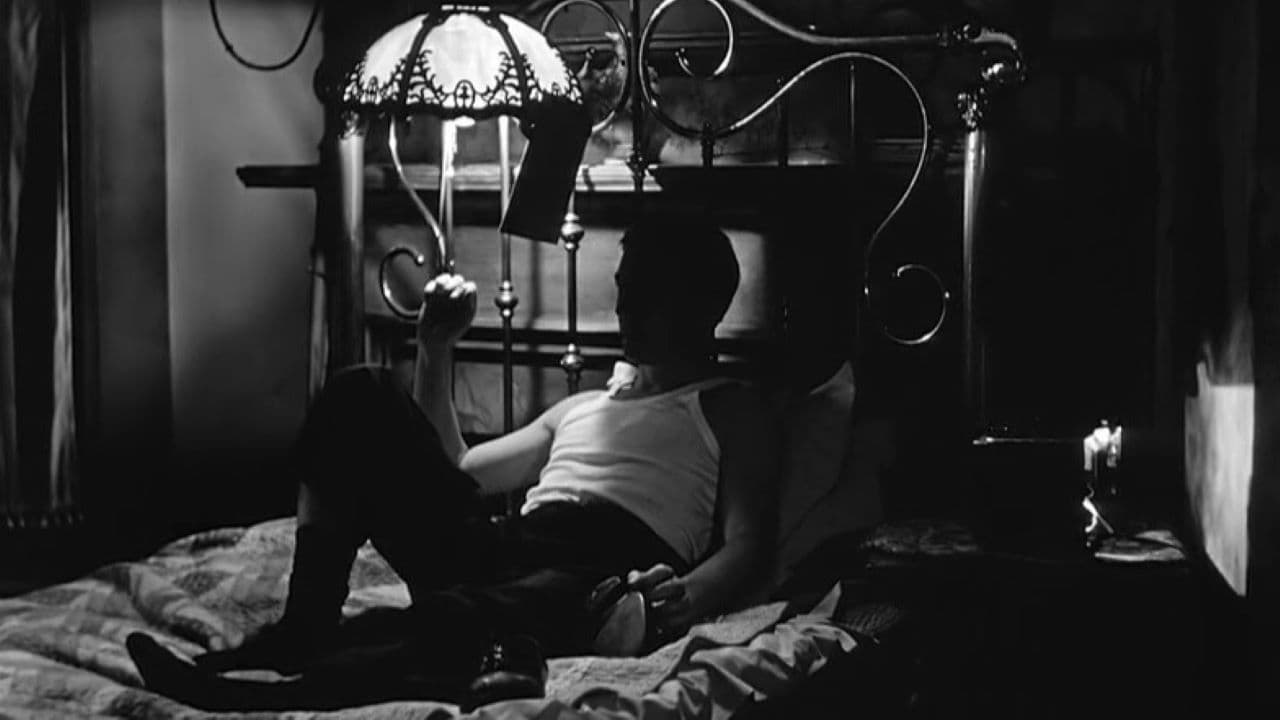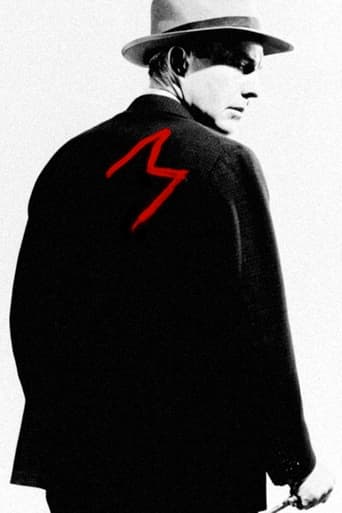

Wow! Such a good movie.
... View Morean ambitious but ultimately ineffective debut endeavor.
... View MoreIt’s fine. It's literally the definition of a fine movie. You’ve seen it before, you know every beat and outcome before the characters even do. Only question is how much escapism you’re looking for.
... View MoreIt's a feast for the eyes. But what really makes this dramedy work is the acting.
... View MoreOh my gosh, what a cheesy scene with the mock lawyer defending the accused against the mobsters and the angry parents. Nothing but shallow, trite, over-emotional, characterizations designed to alarm the audience. Subtly and sophistication ? Not at all. Why have meaningful ideas when the characters can just yell well-worn slogans. Do you like being provoked for the sake of being provoked? If yes then you will love this movie. Absolutely nothing is believable about this movie.
... View MoreRemake of the Fritz Lang classic about the hunt for a child murderer is a good little film in its own right. To be certain the film is not the equal of the original, however it is a solid film in its own right. The film plays like a "daylight" film noir (since kids are only really out during the day it has to be set during the day) mixed a bit with a procedural ala Dragnet, though the people we follow most are actually the crooks of the city who view the killer as a hindrance to their own ends. One of the films strong points is how we see the madness of the mob as regular citizens and even the "bad guys" try to get the right man, and aren't always successful. If there is any trouble with the film its that David Wayne as the killer is not the presence of Peter Lorre. Wayne is probably closer to a real sociopath in that he is a little nothing of a man which is terrifying thought since he could be anyone, but its not exciting on the screen because he is such a nobody. Worth tracking down.
... View MoreI commemorated the 25th anniversary from the death of director Joseph Losey (which occurred on 22nd June 1984) by watching his two best (and, ironically, rarest) Hollywood movies, both noirs made in 1951 – THE PROWLER and M. Fritz Lang's original 1931 version of the latter is not only generally considered to be its director's masterpiece but, on a personal note, is also included in my all-time Top 20 movies. Therefore, I had always been particularly interested in seeing how Losey (another director I admire a great deal) had tackled the daunting task of remaking – and relocating to L.A. – such an iconic German movie. Boasting the original's own producer, Seymour Nebenzal, the 1951 remake has been almost impossible to see and, actually, I only managed to track down a mediocre-looking print a few months ago; even so, I am certainly grateful to have been given the opportunity to catch up with it especially in view of the fact that Sony's long-rumored Joseph Losey box set on R1 did not materialize after all! Perhaps inevitably, the film's initial stages (the murder of little Elsie) closely resemble those of Lang's film – even down to the choice of camera set-ups: the high angle shot down an eerily desolate flight of stairs, the close-up of the vacant breakfast table, the tell-tale shots of a solitary flying balloon and a rolling ball – but Losey nevertheless manages to gradually make the film his own, culminating in a trademark hysterical finale that highlights a new character not featured in the original: Luther Adler's alcoholic attorney who is, ill-advisedly, moved to turn against his boss Martin Gabel after the baby-killer's confession. David Wayne – best-known until then for playing lightly comic roles – is quite good in his own right (especially during the aforementioned trial sequence) if, understandably, falling short of Peter Lorre's unforgettable original characterization; similarly (and effectively) cast against type, Howard Da Silva makes for a fine Chief of Police, while the sterling supporting cast includes Raymond Burr (also atypically amusing as a raspy-voiced, leading underworld thug), Steve Brodie (as a sadistic cop), Glenn Anders and Jim Backus (as the mayor)! Interestingly enough, two directors-to-be were employed in minor capacities on this film: assistant director Robert Aldrich and script supervisor Don Weis. Allegedly, Fritz Lang balked at Nebenzal's offer to direct the remake himself and never forgave Losey for daring to touch his magnum opus he must have conveniently forgotten the fact that he had himself remade in Hollywood two Jean Renoir classics – LA CHIENNE (1931) and LA BETE HUMAINE (1938) – as SCARLET STREET (1945) and HUMAN DESIRE (1954) respectively!
... View MoreI just saw it at the Film Forum in Manhattan, and the notion that your review of "abysmal" could be the topline comment for this movie is really a shame. Far from having a terrible reputation, this unknown classic is just now being rediscovered. And your description of the conflict between the cops and the mobsters as being like "Ed Wood" says more about you personally than it does about the movie. And to everyone else: this is a lost classic, unfairly dismissed in its day because it was a low-budget remake. The vintage L.A. locations alone make this movie well worth seeing, almost like a documentary of a past that is mostly gone.And Raegan, I love how you so consistently make statements and then retreat from them, claiming that it's interesting, yet a failure, dated, yet not without merit. Pick a side buddy. I also love how you say that the movie is set in San Francisco (you too, repticicus!). Uh, it's set in L.A., buddies. They're two different cities, and they're about 6 hours away from each other on the 5.
... View More